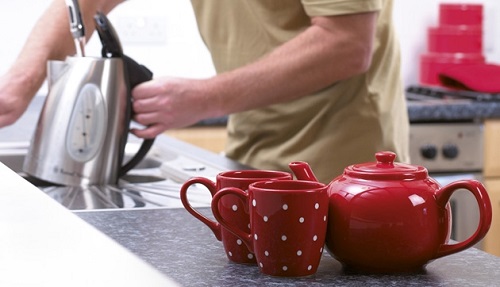
As the green energy campaigns continue to get stronger by the day, more people are becoming aware of the things that they need to do in order to be environmentally conscious. If you want a quick visual guide, Clydesdale Bank have a well-crafted infographic on saving energy at home.
The kitchen is one area of the home where energy saving is difficult for a lot of people. This piece takes a look at some of the things you may incorporate in your daily life to get energy efficient in the kitchen. For instance, using a propane gas stove instead of an electric stove or microwave can reduce your energy consumption. Moreover, since propane is natural gas (which you can get from a supplier such as fsioilandpropane.com), it also reduces your ecological footprint.
During cooking
- Turn off your microwave when not in use especially if you don’t use the clock
- Cut down on oven time as some dishes will continue to cook while the oven cools down.
- Avoid leaving the oven door open for too long when it is in use
- Get a segmented pan or steamer so you can cook different types of vegetables on one cooking ring
- A pressure cooker or microwave should be used more than the oven as these cook food faster
- Turn off taps completely after use to save both water and gas
- While cooking, ensure the gas flame doesn’t escape the bottom of the pan. This saves gas.
- Using the right size of pan for your cooking and putting a lid on it is a great way to cook food quicker and save energy.
- Instead of heating a pan on the stove, boil water for cooking using a kettle. This will not just be more efficient but will also cut down the amount of time spent on cooking.
Using the fridge
- If your fridge is old and is not an A+ or A++ rated model, consider getting a new one. This can save you as much as 22 a year
- Clear the condenser coils at the back of your fridge using a feather duster. With excessive dust on the condenser coils, the energy consumption of the fridge can increase.
- Make sure the fridge isn’t placed in line of direct sunlight
- Defrosting the fridge and freezer regularly can help stop ice from building up.
- Load and unload your fridge as fast as possible and ensure the fridge door doesn’t remain open for far too long.
- Ensure your fridge is kept at an optimum temperature of 3 C to 5 C at all times.
Lights around the kitchen
- Don’t leave any electrical appliances on or plugged in when they are not in use. Some of the common electrical appliances in the kitchen can still use energy even when turned off.
- Energy saving light bulbs last 10 times longer than ordinary bulbs. Using one of these is a sure way to save up to 35 over the life of the bulb.
These are some of the major ways you can save money in the kitchen.